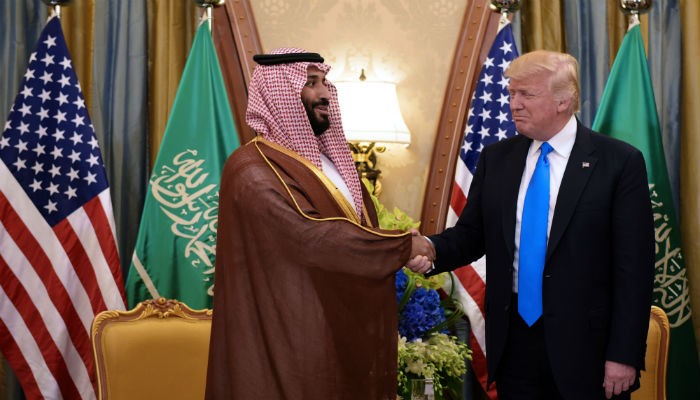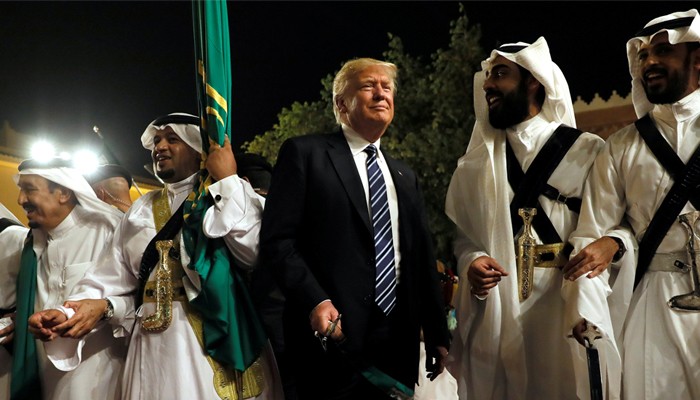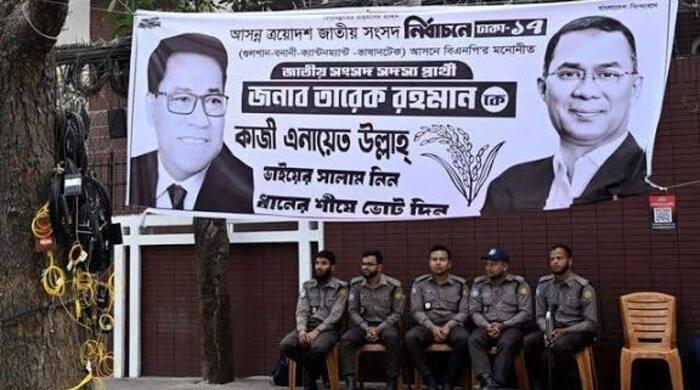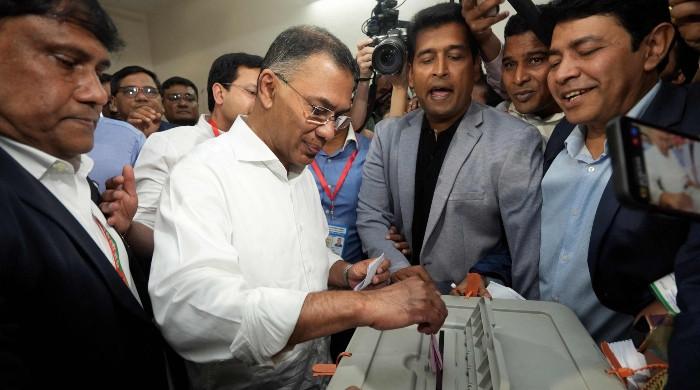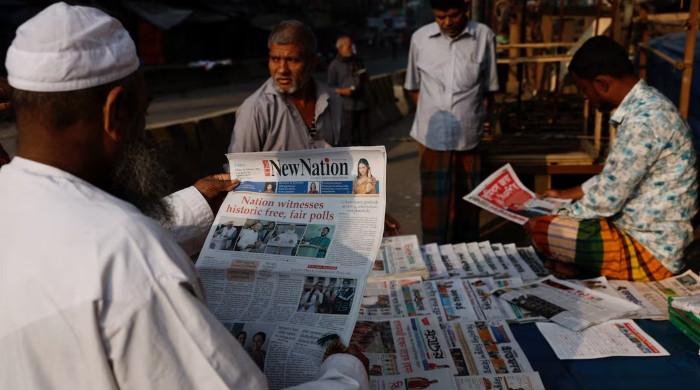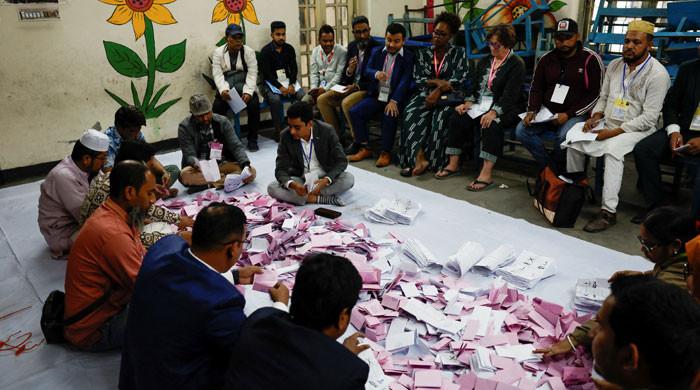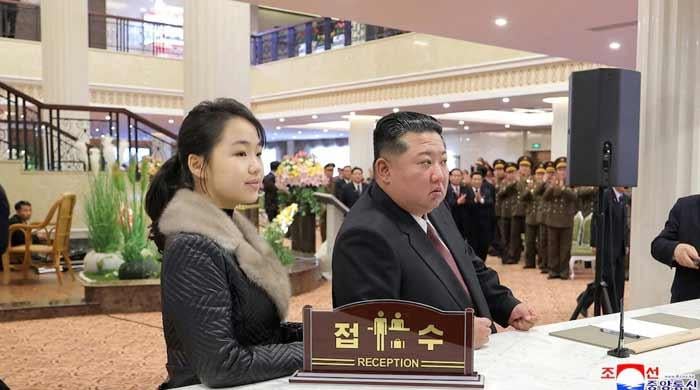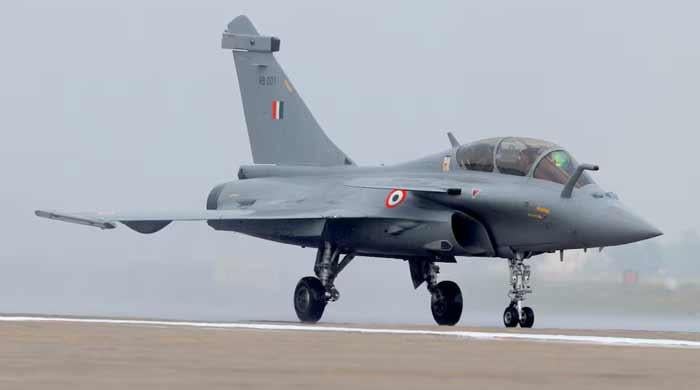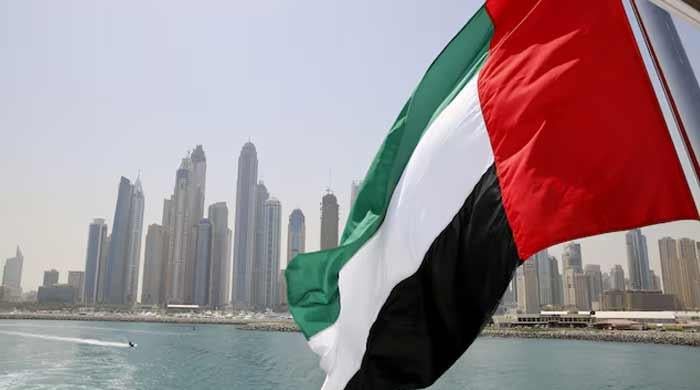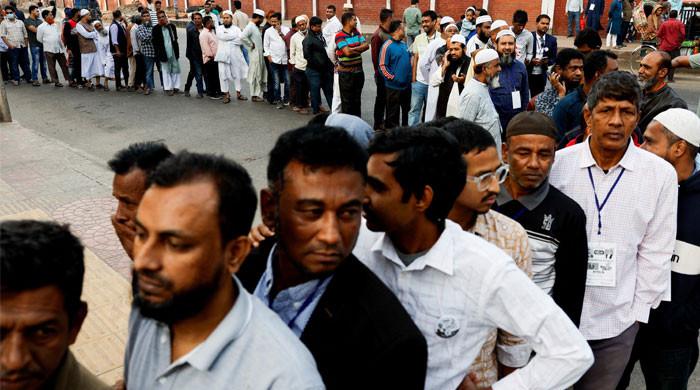Trump in Israel says 'rare opportunity' to bring peace to region
Trump will attempt to revive stalled Israeli-Palestinian peace process with visits to Jerusalem and the West Bank
May 22, 2017
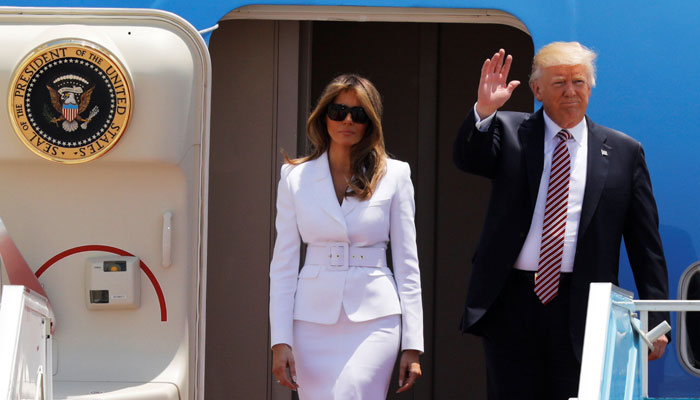
TEL AVIV: US President Donald Trump spoke of a "rare opportunity" to bring stability to the region as he landed in Israel on Monday to seek ways to restart Israeli-Palestinian peace efforts.
Trump also hailed the "unbreakable bond" between the United States and Israel as he spoke at a brief ceremony at the airport in Tel Aviv after landing.
"On my first trip overseas as president, I have come to this sacred and ancient land to reaffirm the unbreakable bond between the United States and the state of Israel," Trump said.
He said later: "We have before us a rare opportunity to bring security and stability and peace to this region and to its people, defeating terrorism and creating a future of harmony, prosperity and peace. But we can only get there working together. There is no other way."
Trump will hold talks with Israeli Prime Minister Benjamin Netanyahu later in the day and travel to the occupied West Bank on Tuesday to meet Palestinian president Mahmud Abbas.
Over two days, Trump is to meet separately with both Israeli Prime Minister Benjamin Netanyahu and Palestinian President Mahmoud Abbas and visit holy sites. On Monday in Jerusalem, he will pray at the Western Wall and visit the Church of the Holy Sepulchre.
On his maiden foreign tour since taking office in January, Trump is already showing signs of fatigue from a packed schedule. He is on a nine-day trip through the Middle East and Europe that ends on Saturday after visits to the Vatican, Brussels and Sicily.
During a speech in Riyadh on Sunday, he urged Arab and Islamic leaders to do their share to defeat terrorism and extremism.
On Sunday night in Riyadh after a long day of events, many of them delayed, he skipped a "tweeps" forum for young people that was to be his last activity of the day, sending daughter Ivanka in his place.
Over the weekend, Trump received a warm welcome from Arab leaders, who focused on his desire to crack down on Iran's influence in the region, a commitment they found wanting in the Republican president's Democratic predecessor, Barack Obama.
The reception marked a contrast from his difficulties at home where he is struggling to contain a mushrooming scandal after his firing of former FBI Director James Comey nearly two weeks ago.
Long-stalled peace talks
Trump has vowed to do whatever is necessary to broker peace between Israel and the Palestinians but has given little sign of how he could revive long-stalled negotiations.
When he met Abbas earlier this month in Washington, he stopped shortly of explicitly recommitting his administration to a two-state solution to the decades-old conflict, a long-standing foundation of US policy. Some Palestinians said they were disappointed by the omission.
Trump has also opted against an immediate move of the US Embassy in Tel Aviv to Jerusalem, a longtime demand of Israel.
A senior administration official told Reuters last week that Trump remained committed to his campaign pledge to ultimately relocate the embassy but did not plan to announce such a move while on his trip.
"We're having very good discussions with all parties and as long as we see that happening, then we don’t intend to do anything that we think could upset those discussions," the official said.
On Sunday, Israel authorized some economic concessions to the Palestinians that a Cabinet statement said "will ease daily civilian life in the Palestinian Authority after (Trump) who arrives tomorrow, asked to see some confidence building steps."
In his speech attended by dozens of Arab and Islamic leaders, he toned down the harsh anti-Muslim rhetoric he had employed during the presidential campaign last year in favor of trying to gain cooperation against militancy.
"A better future is only possible if your nations drive out the terrorists and drive out the extremists. Drive them out," Trump said.
Trump will have visited significant homes of three major religions by his trip's end, Islam, Judaism and Christianity, a point that his senior aides say is important in bolstering his argument that militancy is a battle between "good and evil."
